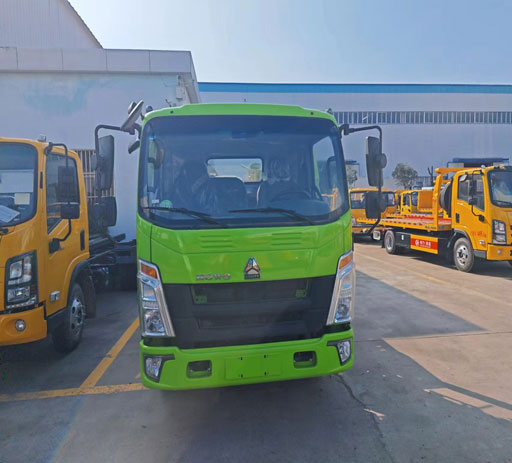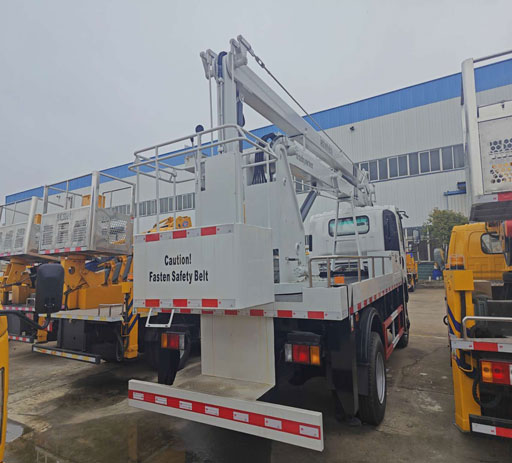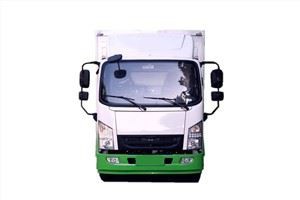Guide to Buying a Tanker Truck: Everything You Need to Know
Introduction
When it comes to transporting liquids, purchasing a tanker truck is a significant investment for businesses in various industries. Whether you are in the petrochemical industry, food and beverage sector, or waste collection, a tanker truck is essential for efficient operation. This article provides a comprehensive guide on how to buy a tanker truck, including key factors to consider, types available, financing options, and maintenance tips. By the end of this guide, you’ll be well-prepared to make an informed decision on your next tanker truck purchase.
Understanding Tanker Trucks
What is a Tanker Truck?
A tanker truck is a motor vehicle designed specifically to transport liquids. They come in various sizes and configurations and can carry everything from water and milk to hazardous materials. Understanding the purpose of your tanker truck is crucial in deciding which type suits your needs.
Types of Tanker Trucks
Tanker trucks vary extensively based on their intended use. Here are some common types:
- Chemical Tankers: Designed to transport hazardous materials, these trucks feature special coatings to prevent corrosion.
- Oil Tankers: Used for transporting petroleum products, they are usually equipped with specialized compartments.
- Food Grade Tankers: Designed to transport food and beverages, these trucks meet stringent health regulations.
- Water Tankers: Generally used for municipal water supply or agricultural irrigation.
- Vacuum Tankers: Used to empty septic tanks or transport sludge and waste material.
Key Features to Look for in a Tanker Truck
When selecting a tanker truck, consider the following key features:
- Capacity: Determine how much liquid you need to transport regularly.
- Material: Tankers are generally made from aluminum, stainless steel, or carbon steel—choose based on the liquid being transported.
- Safety Features: Look for features such as emergency shut-off valves, spill containment systems, and reflective markings.
- Compliance: Ensure the truck meets local regulations and safety standards.
Assessing Your Needs
Determine Your Transportation Requirements
To make the right decision, consider the following:
- Type of Liquid: Different tankers are designed for different liquids. Make sure to choose one that meets your specific needs.
- Volume Capacity: Calculate the volume of liquid you typically transport to choose an appropriately sized tanker.
- Frequency of Use: Assess how often you will need the tanker truck to determine if you should buy or lease.
Budgeting for Your Purchase
Your budget will dictate your options when looking to buy a tanker truck. Consider all costs involved:
- Purchase price of the truck
- Insurance costs
- Maintenance costs
- Fuel efficiency
New vs. Used Tanker Trucks
Benefits of Buying New Tanker Trucks
New tanker trucks offer several advantages:

- Warranty: Most new trucks come with a manufacturer’s warranty, protecting your investment.
- Modern Features: Newer models often include the latest safety and technological advancements.
- Customization Options: You can often customize the features to suit your specific needs.
Pros and Cons of Used Tanker Trucks
Used tanker trucks can be beneficial for businesses on a tight budget. Consider the pros:
- Lower Purchase Price: Significantly cheaper than new options, allowing you to save costs.
- Immediate Availability: Often readily available for purchase as opposed to waiting for new trucks to be manufactured.

However, there are also cons:
- Higher Maintenance Risk: Older trucks may require more frequent repairs.
- Lack of Warranty: Many used trucks are sold “as is” without warranties, potentially increasing your financial risk.
Where to Buy a Tanker Truck
Dealerships
Purchasing from a dealership often provides the simplest and most reliable purchasing experience. They may offer financing options, warranties, and service support.
Online Marketplaces
Online platforms such as TruckPaper and Craigslist can be excellent resources for finding used tanker trucks. However, caution is needed to ensure quality and trustworthiness.
Auctions
Transportation equipment auctions can provide opportunities to buy trucks at a lower price. However, it’s essential to inspect trucks thoroughly before bidding.
Financing Your Tanker Truck Purchase
Traditional Bank Loans
Many buyers opt for traditional bank loans, which may require a down payment and offer fixed interest rates.
Leasing Options
Leasing can be a flexible option for businesses that do not need to own the truck outright. A lease allows you to use the truck for a specified term while making monthly payments.
Specialized Financing Programs
Some lenders offer specialized financing for commercial vehicles, including tanker trucks. Research various lenders to find competitive rates and terms.
Maintenance Tips for Your Tanker Truck
Regular Inspections
Conduct routine inspections to identify any potential issues early on. Check for leaks, ensure the brakes are functioning properly, and inspect the tires.
Service Schedule
Establish a service schedule based on manufacturer recommendations. Routine maintenance helps extend the life of your tanker truck.
Record Keeping
Maintain thorough records of all service and repairs. This documentation can help with resale value and warranty claims.
FAQs About Buying a Tanker Truck
1. What is the average cost of a tanker truck?
The cost of a tanker truck can range from $20,000 to over $150,000, depending on its size, type, and whether it is new or used.
2. Do I need a special license to drive a tanker truck?
Yes, most regions require a Commercial Driver’s License (CDL) with a tanker endorsement to drive a tanker truck.
3. What should I check when buying a used tanker truck?
Inspect the truck for any signs of damage, mechanical issues, and confirm that it meets local safety standards. A pre-purchase inspection by a qualified mechanic is advisable.

4. Can I finance my tanker truck purchase?
Yes, most buyers finance their tanker truck through loans, leasing options, or specialized financing programs.
5. What maintenance does a tanker truck require?
Tanker trucks require regular inspections, routine maintenance checks, and adherence to service schedules to ensure safety and performance.
6. Is it better to buy or lease a tanker truck?
It depends on your business needs. Buying offers ownership and flexibility, while leasing can lower initial costs and provide access to newer models.
